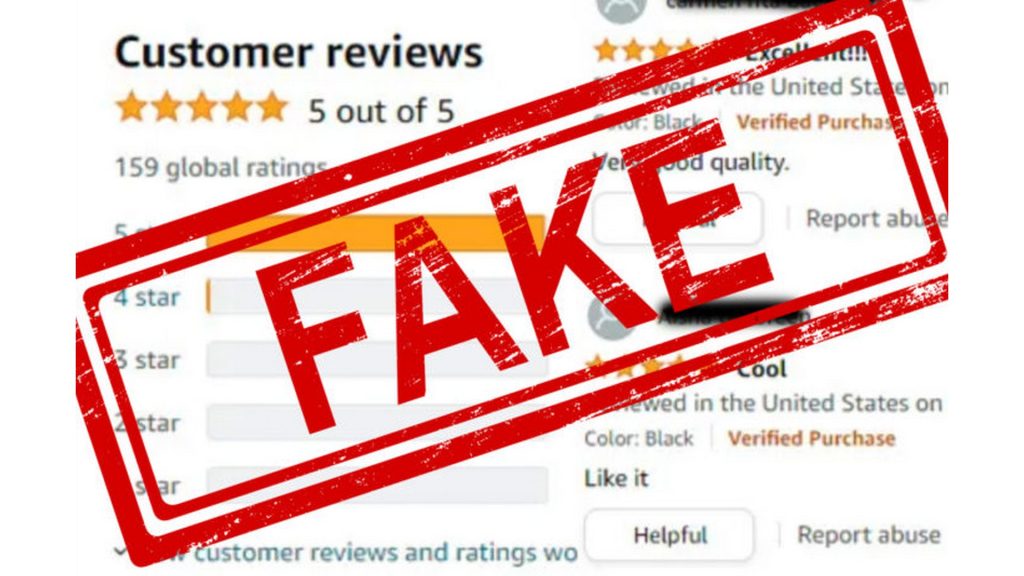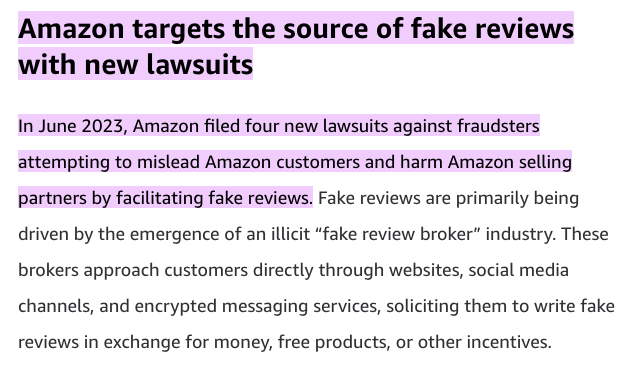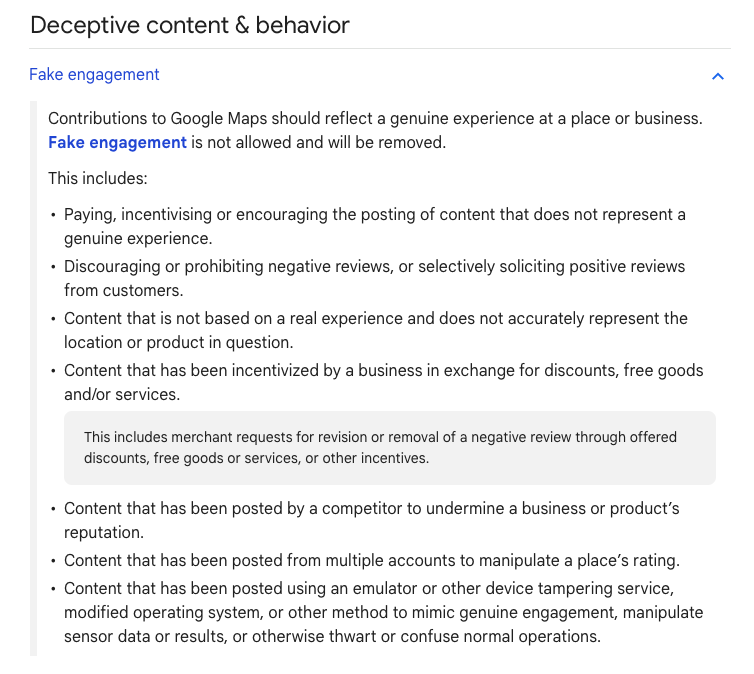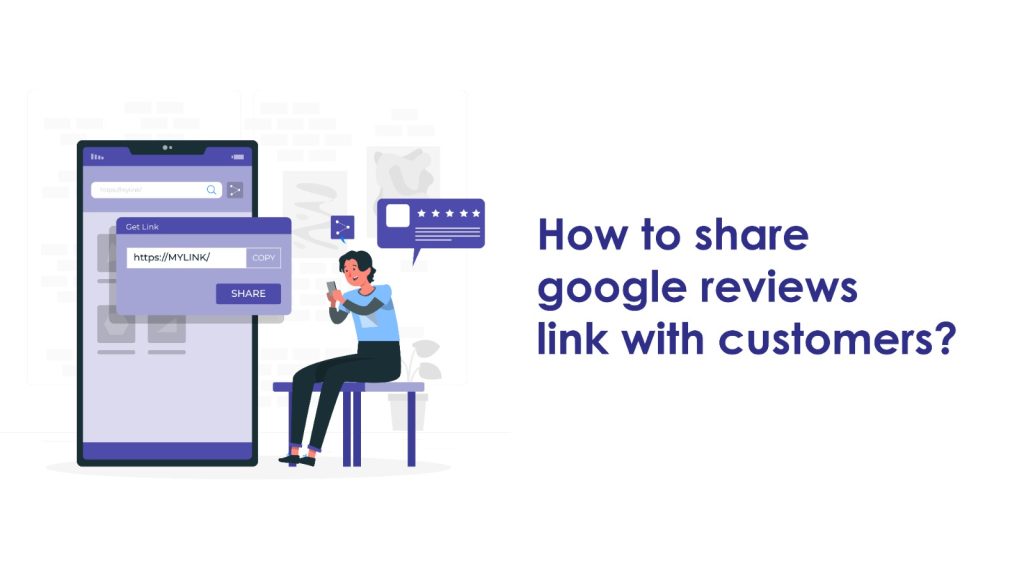Statistics show that 93% of customers check reviews before making their final purchasing decision.
Given this, many businesses try to find ways to make the most out of positive reviews.

Some businesses consider fast fixes, such as buying fake positive online reviews, to improve their online reputation quickly.
This may seem a quick way to gain visibility online, but it has some severe drawbacks. This is not only unethical but comes with other risks. Platforms are tightening down on fraudulent practices, and consumers are getting better at recognizing phony reviews.
Let’s look at the drawbacks of buying fake reviews.
Drawbacks of paying for fake positive reviews
Offering your customer rewards like gifts or coupons in exchange for positive reviews may be tempting, but there are a few reasons why this is a bad idea.
1. Loss of Trust and Credibility
Authenticity is a key factor in building trust for any business.
Think about it – would you trust a product or service that had fake reviews? Probably not.
People are getting better at spotting fake reviews. They can sense when something is not right, like when all the reviews sound too good to be true. So, instead of gaining trust, you might end up losing it, and trust is crucial for a business to succeed.
Even offering incentives for writing positive reviews is a form of bribery. If the word gets out that you offer rewards in exchange for reviews, it can have disastrous results. Successful businesses are built on trust, so fake reviews are detrimental. Your customer’s faith in your brand will erode once they learn of dishonest tactics.
Companies like Google and Yelp penalize companies that publish fake reviews. When Google detects a fake review, it can remove it or remove your company’s listing from the Google Listing page.
Yelp prominently displays a Customer Alert Banner on the Company page for 90 days, damaging your reputation permanently.

2. Legal Consequences
Fake reviews are not just ethically wrong; it’s also against the law. Misleading people through fake reviews can violate consumer protection laws, and you could face legal actions, fines, or other penalties.
In the US, the Federal Trade Commission sees fake reviews as tricky or false advertising. Businesses that get caught might have to pay fines of hundreds of dollars for fake positive online reviews.

Getting paid or getting rewards for reviews is not allowed unless both the business and the reviewer say they got something in return for giving their honest opinion.
The FTC takes consumer fraud claims seriously. If you’re caught buying or giving rewards for reviews, you could be fined a lot of money – hundreds of dollars. In 2019, a company had to pay a massive fine of $12.8 million for getting fake reviews.
Companies like Amazon have stated that they will file lawsuits against businesses that manipulate reviews on their platform by purchasing positive ratings.

3. Customers Can Detect Fake Reviews

Consumers are becoming increasingly savvy when it comes to identifying fake reviews. Artificial intelligence and sophisticated algorithms enable platforms to detect patterns indicative of fake reviews. If customers sense that reviews are not genuine, it can erode their confidence in the business.
Over 80% of people reported they read fake reviews online. Most fake reviews have some things in common:-
- Reviewer focuses on a particular industry or niche (because they target business rivals).
- Multiple reviews are posted simultaneously by the reviewer.
- Duplicate reviews posted from several accounts.
- Suspiciously positive language and overly generic comments
- They never post images on their review.
- Reviews have generic, vague content and lack detail.
4. Buying Positive Reviews Won’t Necessarily Work
Paid positive reviews do not guarantee success. Consumers often look for a mix of positive and negative reviews to make informed decisions. An abundance of overly positive reviews can appear unnatural and raise suspicions among potential customers.
Research by Northwestern University’s Spiegel Research Center found that moderately positive reviews tend to be more persuasive than excessively positive ones. Therefore, businesses should focus on genuine customer feedback rather than relying on an artificial influx of positive reviews.
5. Fake Reviews Might Harm Your SEO (Google Doesn’t Like It)
Google’s algorithms are designed to detect and penalize manipulative tactics, including fake reviews. Engaging in such practices can harm your website’s search engine and your Google business page ranking and visibility.
In the screenshot, you can observe the contributions that Google sees as fake engagement.

According to Google’s guidelines, it’s considered spam if they find fake reviews, and you might face penalties. These penalties can include your business appearing lower in search results or suspending your business page listing.

So, the harm to your website’s SEO, or how it shows up on Google, can be more significant than any quick benefits from fake positive reviews. This rule applies to your website and your Google Business pages and listings on Google Maps.
A Better Way To Get More Online Reviews
Buying positive reviews might seem like a quick solution, but it usually causes more problems than it solves.
Instead of taking shortcuts that can hurt your reputation, try a better way to get online reviews. Focus on making customers happy, asking for reviews at the correct times, and making the process easy for them. You can also use different places for reviews, like Google or Yelp.
You use a helpful tool, ReputeUp.ai, that can assist you. It helps businesses manage their online review and collect them on behalf of your company. With ReputeUp.ai, you can build trust and credibility online while staying true to your business values.
 Skip to content
Skip to content


